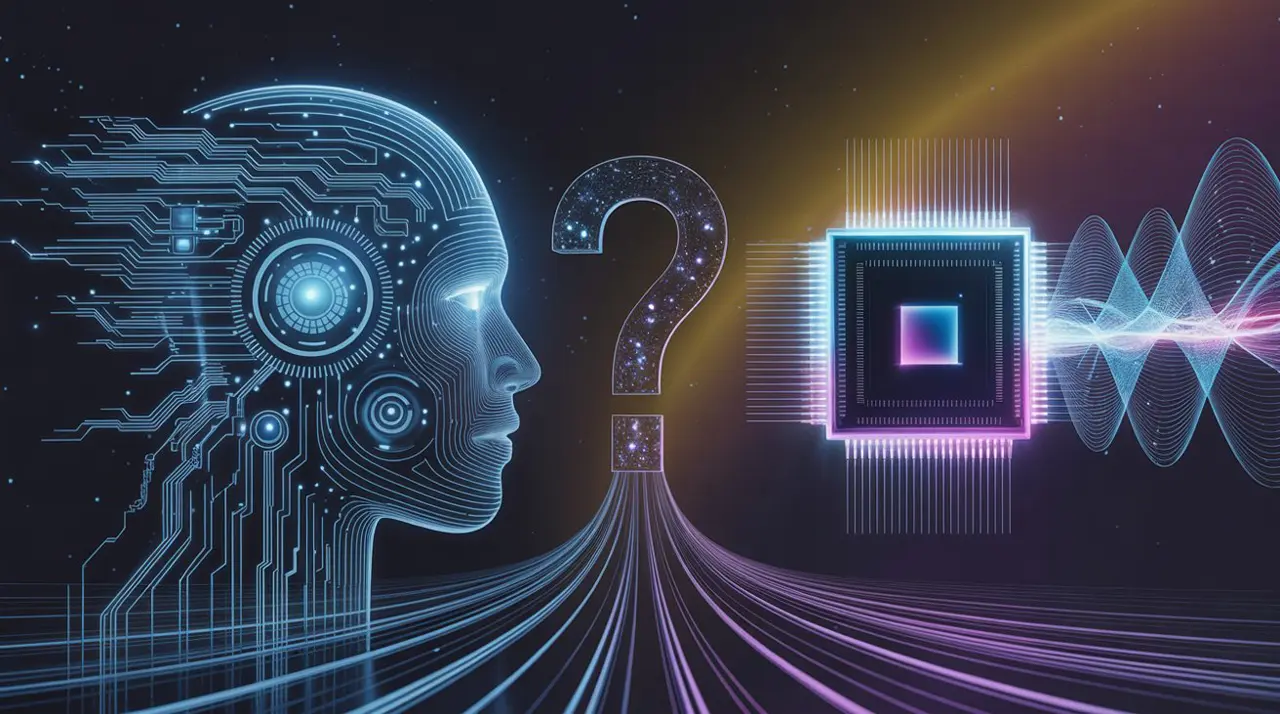While the world is busy debating the AI (artificial intelligence) technology — fearing mass employment, struggling with deepfake, marveling at ChatGPT, and trying to automate just everything — but a bigger and more powerful technology is silently brewing in the background.
The technology that will break past the classical limits of binary computing and perform computations that even the most powerful supercomputers to date can’t handle — and at a scale previously thought impossible.
Could you guess it?
We’re talking about Quantum Computing — the transformational technology that not just accelerates AI but also gives a whole new definition of computing. By harnessing the peculiar quantum mechanisms, quantum computers can solve problems faster than supercomputers in the most complex areas, such as cryptography, with manifold outcomes at a lightning-fast speed. Quantum computing and AI are not opponents; both are meant to go hand-in-hand, or we could say that quantum computing is
Here’s an example to put its power into perspective —
In December 2024, Google announced Willow — its latest quantum chip. With a 105-qubit processor, Willow performed a computation in less than five minutes that today’s fastest supercomputer could solve in 10 septillion years.
Sounds shocking and exciting?
But this tremendous power comes at a cost — some hidden risks — especially in security and sustainability; Not to mention its potential to weaken authentication protocols and hack blockchain — except post-quantum blockchain technology.
This article explores how big quantum computing is, the extent of the disruption it might cause, and both negative and positive sides of the emerging technology.
What exactly is quantum computing?
Quantum computing relies on advanced technologies (unlike AI, which uses traditional graphics processing units), such as super-cold superconductor chips, neutral atoms, and trapped ions, all of which operate in highly isolated environments to protect their processing.
In contrast to classical computing, which processes information in bits (1s or 0s) serially, quantum computers use qubits, which can process a 1 and 0 in parallel. With sufficient quantum bits (qubits), quantum computers could process high-impact problems millions of times faster than the fastest microchip computers available today.
Technology titans like IBM, Google, Microsoft, and Intel — as well as many startups — already have development roadmaps for these experimental machines. Some cloud computing giants are also already offering quantum computing-as-a-service.
However, the nascent technology has led to a new debate — Are quantum computing and AI a happy marriage or distant cousins?
According to the efforts so far, there has been much hope that quantum computing would transform and enhance artificial intelligence, introducing new and powerful capabilities on a scale that had been impossible until now.
Keep reading more to explore how this union may work:
Quantum Computing and AI: Convergence or Competition

At first, quantum computing and AI appear as competing technologies to you, but when you look closer, you find them in perfect convergence. And, the portmanteau name for this convergence is Quantum AI.
AI allows machines to learn, think, and recognize patterns, while quantum computing uses quantum mechanics to accelerate. When both come together, the possibilities are endless.
Imagine AI helps quantum computers find the most efficient ways to run complex calculations, surpassing the speed of light. Additionally, QC can leverage AI to become a superpower, handling complex problems, training models, and optimizing algorithms. Together, they can revolutionize many fields, such as drug discovery, deep space analysis, and massive data interpretation, among others.
However, AI is facing some challenges, and sustainability is one of them, which is due to the large energy requirements. Other challenges are interpretability, scalability, and computational limits. On the other hand, quantum computing is a sustainable technology with more scalability capabilities.
So, there is no doubt that AI and quantum computing, both as a team, are more powerful. However, the combination is at an early stage of active and exploratory research. Some experts are very optimistic and expect unbelievable advantages from quantum AI.
Now, let’s understand the level of disruption quantum computing could cause — with or without AI.
How Powerful Quantum Computing Could Be [Use Cases and Threats]

Not just AI, but quantum computing has enormous power to change the world beyond belief. Let us give you some evidence-backed examples:
Tackle climate modeling
Due to the complexity of the simulation of the forecast model, meeting computational needs was a challenge, but not anymore. Quantum computing…

Comments
Post a Comment